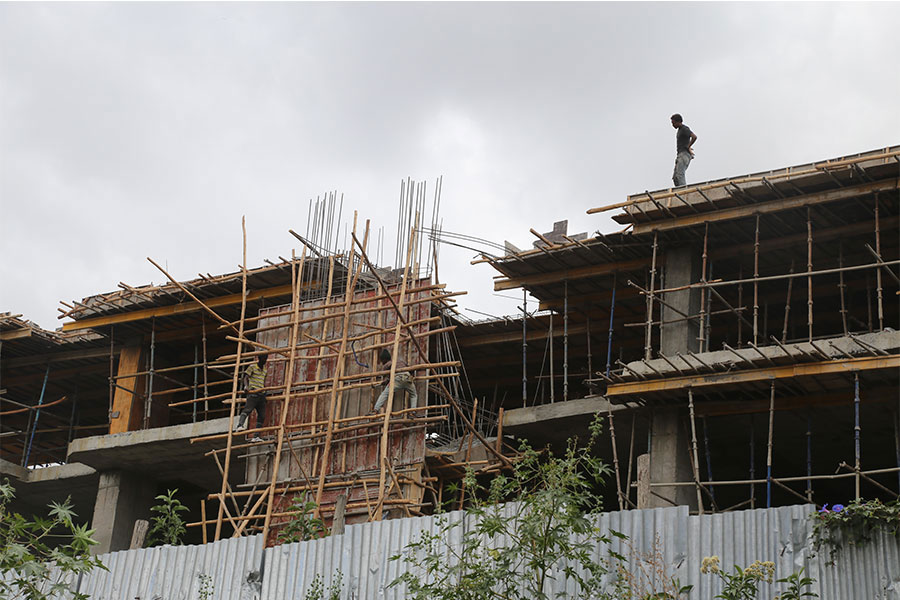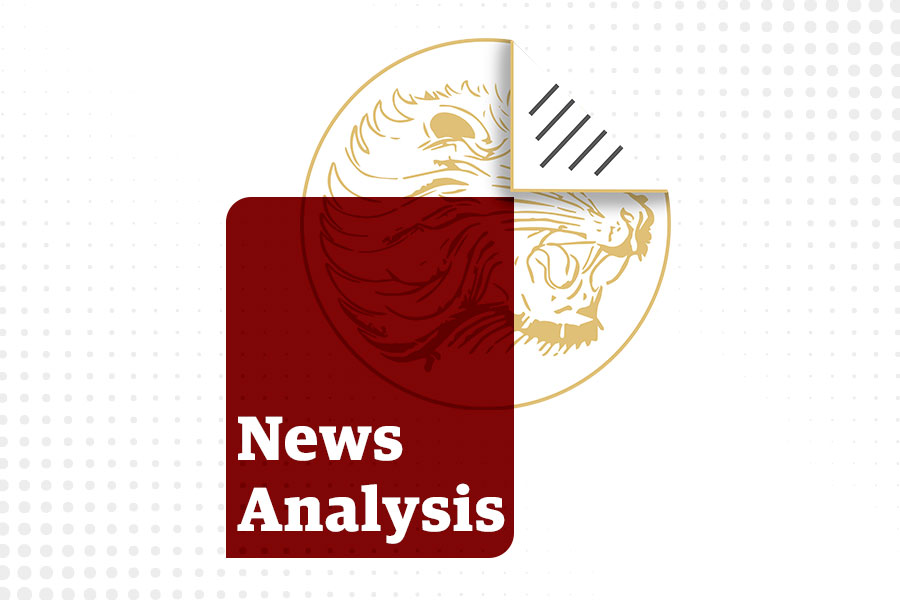
Fortune News | Oct 02,2021
As residents of Addis Abeba grapple with the galloping inflation, serious concerns over the doubled Community-Based Health Insurance (CBHI) rates from the prior year come up during the mobilisation campaign for the current year membership fees.
The Insurance scheme provided subsidised health coverage to over two million residents of the capital in the last budget year while nearly 12 million households from 1,006 Weredas were beneficiaries nationwide.
Membership fees are usually paid in October and November with efforts kicked off in Addis Abeba and Hawassa cities in the past two weeks.
Addis Abeba City Administration has doubled the premium fee to 1,000 Br rounding up the membership fee to 1,500 Br while tripling coverage to 750 Br for household members above 18 years old.
Head of the Bureau, Yohannes Chala (MD), indicated that a study that looked at the rising cost of medicine, laboratory equipment and overall foreign currency shortages preceded the setting of the new rate.
The City Administration provided around 600 million Br to fill up the deficit last year, which will continue this year, according to Yohannes. He disclosed the plan to increase coverage by 20pc as he revealed that all federal hospitals have also revised costs in the past year.
"There is a marked increase in expenses," he said.
The Bureau Head indicated that most state-run hospitals ran out of their allotted budget under CBHI in the first half of the fiscal year, with the City Administration filling in the deficit the rest of the year.
"The accounts show a negative balance for most of the year," he told Fortune.
Since its establishment 12 years ago, the Ethiopian Health Insurance Agency (EHIA) has attempted to realise two types of insurance schemes in the country: Community-Based Health Insurance for the informal economic sector and the formal employees dubbed Social Health Insurance. It still has not taken off due to budgetary constraints.
The annual payments were 170 Br when CBHI was launched in 2012. Officials disclose that general inflation in medical inputs has contributed to the rate rise.
Deputy Director of the Agency, Muluken Argaw (PhD), insists that around 20pc of the members who cannot make payments will likely be covered for free by regional governments.
He disclosed that nine Weredas in the Somali Regional State would be included in CBHI scheme this year.
"We're hoping to increase the coverage even more," he told Fortune.
Muluken underscored that each regional state independently decides the amount of the total payment to be covered from the government's side.
"No nationwide premium gets established," he emphasised.
The officials indicate SHI schemes could begin at any time if the required amount of funding is allocated.
Zemedkun Abebe, communication director of the Agency, disclosed that the new rates are part of efforts to keep a significant majority of members as beneficiaries despite the rise in medical costs. He indicated the decision to include residents such as senior citizens and those deemed to pay the full coverage is decided by Woreda officials.
"High medical costs are pushing people off medical care," he said.
Zemedkun said every regional and zonal administration makes decisions on how much the new rates will be based on the living conditions of residents, with mere reports being received by the Agency on the amount.
While the benefits of the CBHI scheme, which caters to the 80pc of population needs of the informally employed is apparent, experts recommend kickstarting the SHI to funnel some capital from the formal sector as well.
Health economists such as Getasew Amare indicate that Ethiopia's average individual expenditure on health is around half the WHO recommendation of approximately 80 dollars despite remaining too high for many people.
He emphasised that CBHI's contribution to national health expenditures remains low despite accommodating around 50 million people due to the low level of resource mobilisation it currently fosters.
The economist explains that insurance coverages consider risk and cost factors before setting rates to remain financially sustainable, underscoring that flat rates for all income levels is a regressive approach.
"It needs to be themed according to individual needs to remain efficient," he told Fortune.
Getasew recommends cross-subsidisation schemes with other health insurance modalities to enhance the amount of capital mobilised by CBHI to prevent the brunt of the blow from resting on low-income households.
"Rich data on household income levels is critical," he said
Over 230,000 households are beneficiaries of CBHI in Addis Abeba. Research publications revealed that entry into the scheme was mainly influenced by the lower than out-of-pocket cost and high incidence of injury or disease in a household.
A study that included 577 respondents from the capital and published in Preventive Medicine Reports journal two months ago reveals that around 96pc of the households had at least one family member sick or injured in the past six months.
One beneficiary is Shakira Kemal. She said inflation was already making it difficult to keep up with annual payments even at the previous rates.
She observes that prevailing concerns are rising in her surroundings, where those with more than one family member above 18 years old were especially shocked by the tripled renewal fees.
"Those with accrued debt will likely abandon the scheme," she told Fortune.
Shakira reveals that covering health expenses out of pocket these days is "unthinkable" due to the high cost of medical care and runaway inflation. The stay-at-home mother has become particularly concerned as every food item has increased in price over the past year, leaving little disposable cash for the family, whose only breadwinner is her garage-employed husband.
"I have no choice but to pay," she said. "At least all my children are young."
PUBLISHED ON
Oct 21,2023 [ VOL
24 , NO
1225]

Fortune News | Oct 02,2021

Fortune News | Aug 29,2025

Commentaries | Dec 04,2021

News Analysis | May 04,2024

Radar | Oct 14,2023

Commentaries | Sep 27,2020

Radar | Oct 31,2022

Fortune News | Jan 01,2022

Exclusive Interviews | Jan 05,2020

In-Picture | Aug 30,2025

Dec 22 , 2024 . By TIZITA SHEWAFERAW
Charged with transforming colossal state-owned enterprises into modern and competitiv...

Aug 18 , 2024 . By AKSAH ITALO
Although predictable Yonas Zerihun's job in the ride-hailing service is not immune to...

Jul 28 , 2024 . By TIZITA SHEWAFERAW
Unhabitual, perhaps too many, Samuel Gebreyohannes, 38, used to occasionally enjoy a couple of beers at breakfast. However, he recently swit...

Jul 13 , 2024 . By AKSAH ITALO
Investors who rely on tractors, trucks, and field vehicles for commuting, transporting commodities, and f...

Sep 27 , 2025
Four years into an experiment with “shock therapy” in education, the national moo...

Sep 20 , 2025
Getachew Reda's return to the national stage was always going to stir attention. Once...

Sep 13 , 2025
At its launch in Nairobi two years ago, the Africa Climate Summit was billed as the f...

Sep 6 , 2025
The dawn of a new year is more than a simple turning of the calendar. It is a moment...